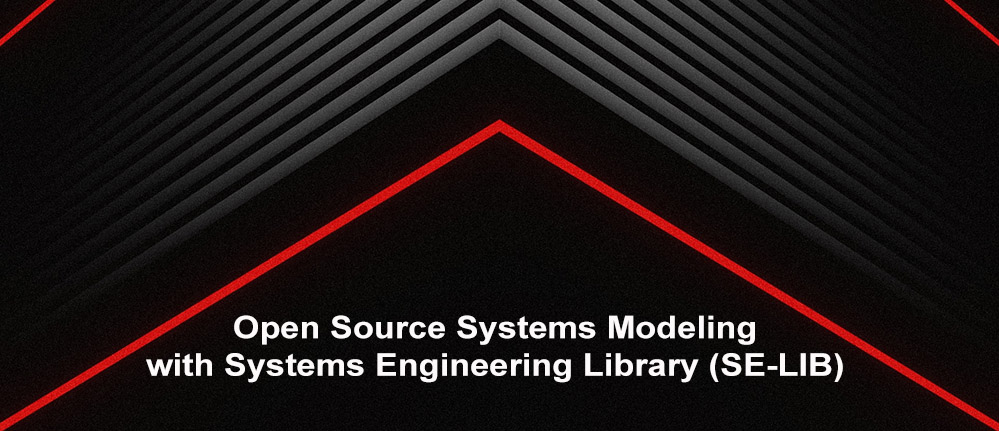* Please note – Due to the need to vet the list of attendees ahead of time, registration is now closed.
Dear Members and Friends!
This June 10th, the INCOSE San Diego chapter will offer a special IN-PERSON 5-hour tutorial on open source systems modeling and an introduction to the Systems Engineering Library (se-lib). This library provides the following capabilities using simple Python code as the glue:
- integrated systems modeling
- simulation
- analysis and diagrams covering SysML
- discrete event and continuous system dynamics simulation
- reliability analysis
- causal analysis
- project management
- and more!
Date: Saturday, June 10, 2023, 9am – 2:30pm (Pacific Time)
Location: SAIC Building, 4065 Hancock St, San Diego, CA 92110 (google maps)
Cost: $10 INCOSE members, $20 non-INCOSE members, $5 students. This price also includes morning coffee and lunch (please contact us if you have special dietary preferences). Register Here
Please note – This tutorial will be held within the SAIC building in Point Loma. Foreign Nationals may attend, but must register at least two weeks in advance and let us know in the registration Notes textbox so that we may inform SAIC beforehand. Thank you.
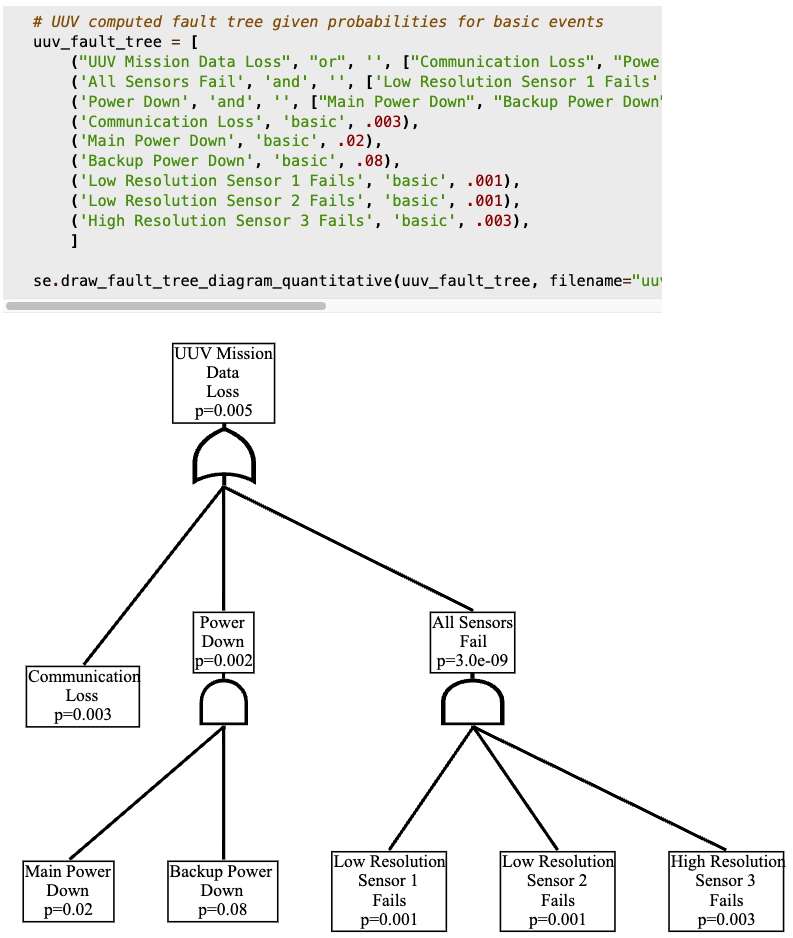
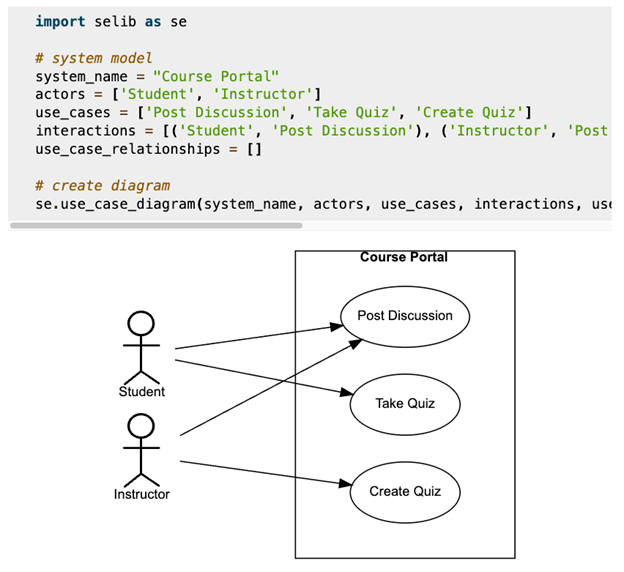
The se-lib is described at: http://se-lib.org.
Why SE-LIB?
- Lowers barriers to system modeling with an open-source tool environment harnessing the extensive Python scientific computing ecosystem.
- Provides integrated capabilities for system modeling, analysis, and automatic documentation with SysML, other SE model types and analysis methods.
- Enables natural integration of models, inline or external data with only a few lines of code!
More examples of what se-lib can do:
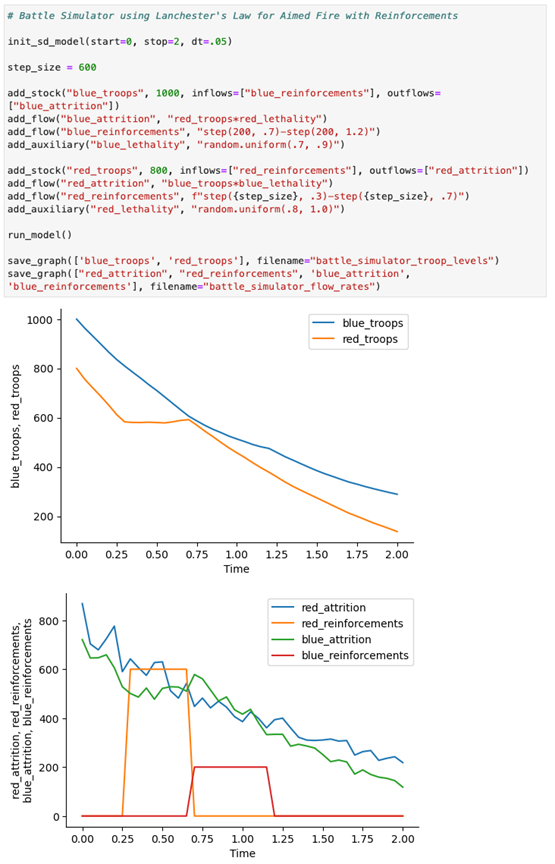
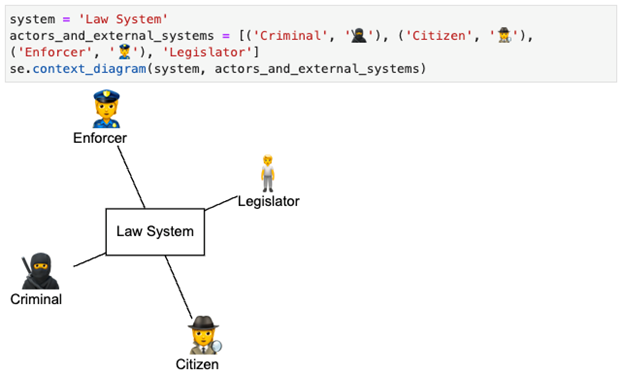
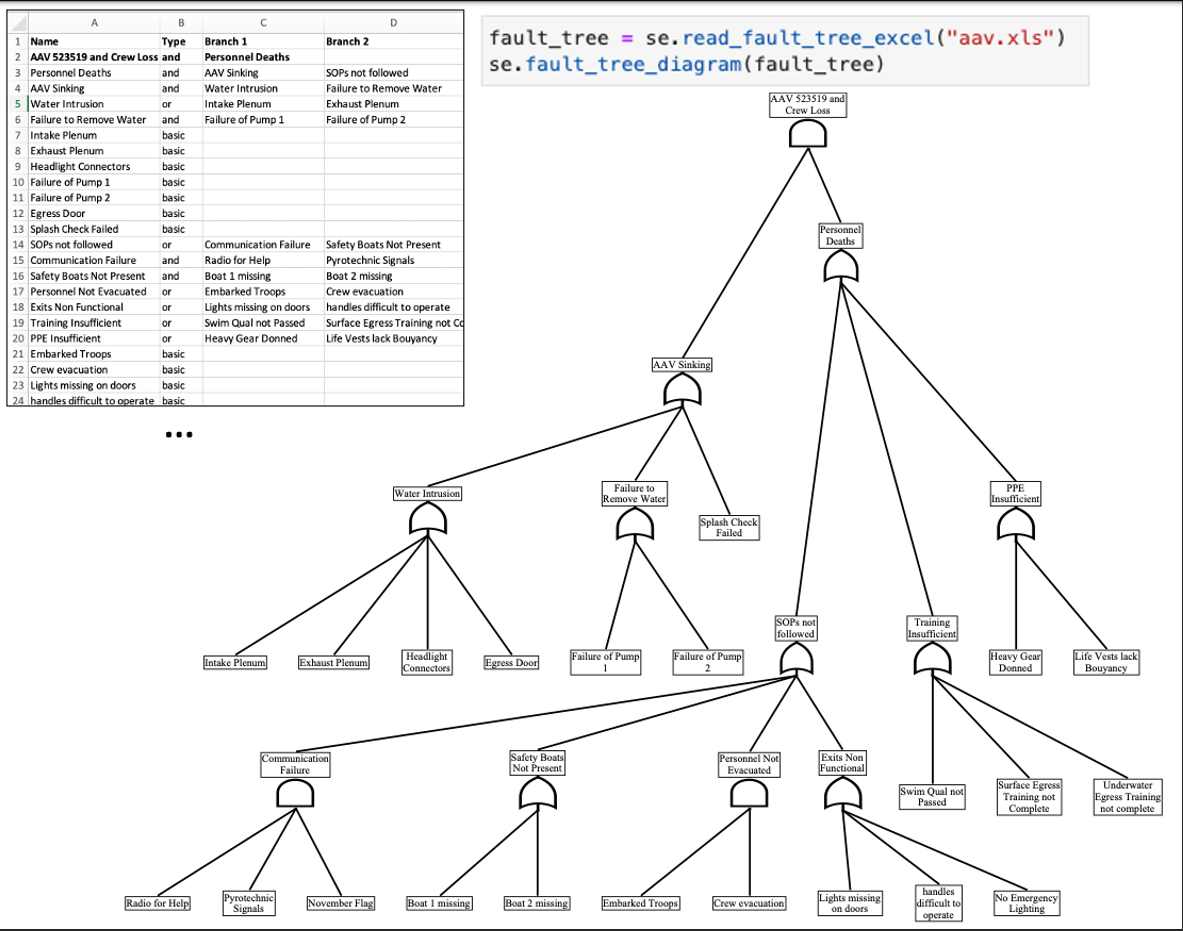
Code examples, templates, and modeling case studies will be provided, and students only need basic computer skills to modify examples or create new models. Previous knowledge of Python is not necessary, as examples are self-evident given that Python was designed to be highly readable and concise. Exercises will be based around simple, short code.
Participants will learn how to incorporate open source modeling in system engineering processes and toolsets. They will learn how open source tools can support rapid iterative processes and automate round-trip digital engineering when reconciling single-source truth models.
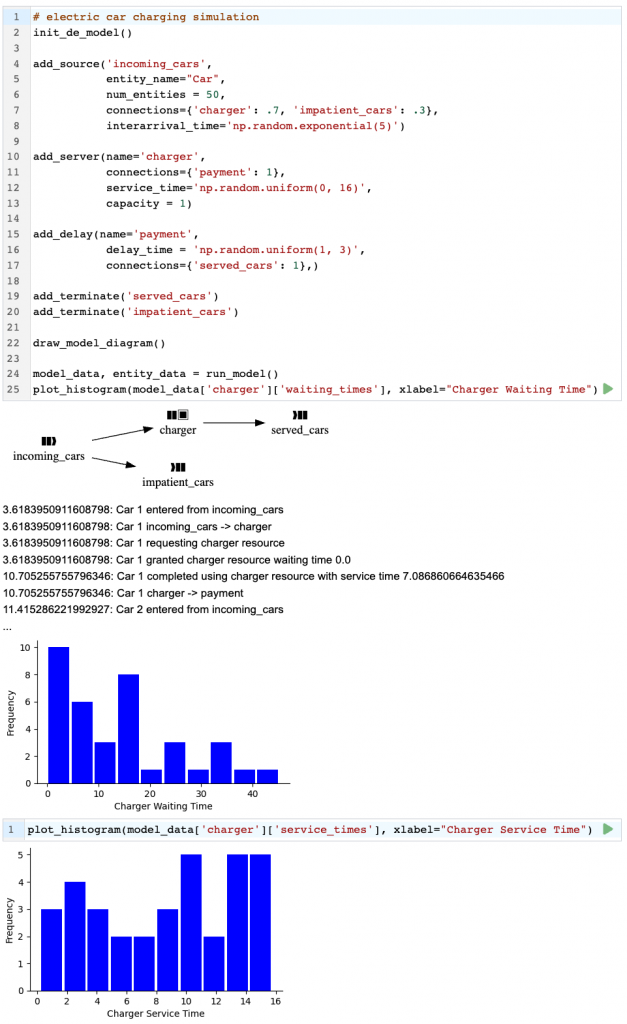
Required for the Tutorial:
- A laptop or other device (a tablet or phone would work)
- Internet connection, provided at the event location (unless participants prefer to work offline and install the library prior).
Agenda:
- Overview of se-lib usage and architecture, demonstrated with system models generated by se-lib.
- Brief introduction to Python syntax via inspection of model examples.
- Hands-on introduction to
- se-lib online
- installation of the library
- Model library demonstrations and exercises
- SysML modeling and diagrams
- System dynamics continuous modeling and simulation
- Discrete event modeling and simulation
- Fault tree analysis, diagrams, and system reliability modeling
- Project management modeling
- Integration of models
- Automatic document re-generation with reconciled changes across model sets
- Model data import/export and sharing with other tools.
- Further examples, guided exercises, and extended case studies on above areas for integrated system modeling.
- Students will be given options for exercises based on their interests and the opportunity to focus on their own system models.
- Advanced usage with Python scientific computing ecosystem and open source communities
- Introduce libraries that are building blocks of se-lib, how they interface with and depend on each other, how to navigate and leverage their capabilities for system modeling applications.
- Digital engineering and rapid change: automated model configuration management, re-execution, impact analysis and version control for round-trip digital engineering.
- Demonstrate how all model artifacts in text files are managed with standard automated tools (e.g. GitHub for small to large teams).
- Future capabilities and evolution plans
- Audience will provide input on desired features and changes
Prerequisites
- General knowledge of system modeling methods as exemplified by SysML, other model types, systems engineering analysis, and simulation.
- Prior exposure to computer programming would be helpful.
Presenters:
Ray Madachy
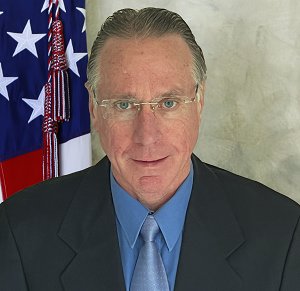 Raymond Madachy, Ph.D., is a Professor in the Systems Engineering Department at the Naval Postgraduate School. His research interests include system and software cost modeling; affordability and tradespace analysis; modeling and simulation of systems and software engineering processes; integrating systems engineering and software engineering disciplines; and systems engineering tool environments. His research has been funded by diverse agencies across the DoD, National Security Agency, NASA, and several companies.
Raymond Madachy, Ph.D., is a Professor in the Systems Engineering Department at the Naval Postgraduate School. His research interests include system and software cost modeling; affordability and tradespace analysis; modeling and simulation of systems and software engineering processes; integrating systems engineering and software engineering disciplines; and systems engineering tool environments. His research has been funded by diverse agencies across the DoD, National Security Agency, NASA, and several companies.He has developed widely used tools for systems and software cost estimation, and is leading development of the open-source Systems Engineering Library (se-lib). He received the USC Center for Systems and Software Engineering Lifetime Achievement Award for “Innovative Development of a Wide Variety of Cost, Schedule and Quality Models and Simulations” in 2016.
His books include Software Process Dynamics, What Every Engineer Should Know about Modeling and Simulation; co-author of Software Cost Estimation with COCOMO II, and Software Cost Estimation Metrics Manual for Defense Systems. He is writing Systems Engineering Principles for Software Engineers and What Every Engineer Should Know about Python.
Ryan Longshore
Ryan Longshore is an 18 year veteran of both the defense and electric utility industries. In his current role at Naval Information Warfare Center Atlantic (NIWC LANT), Ryan leads a diverse team of engineers and scientists developing and integrating new technologies into command and operations centers. Ryan is heavily involved in the Navy’s digital engineering transformation and leads multiple efforts in the model based systems engineering and model based engineering realms.
Ryan earned a BS in Electrical Engineering from Clemson University, a MS in Systems Engineering from Southern Methodist University, and is currently pursuing his PhD in Systems Engineering from the Naval Postrgraduate School. He is a South Carolina registered Professional Engineer (PE), an INCOSE Certified Systems Engineering Professional (CSEP), and has achieved the OMG SysML Model Builder Fundamental Certification.

